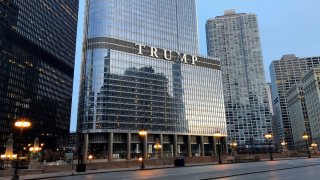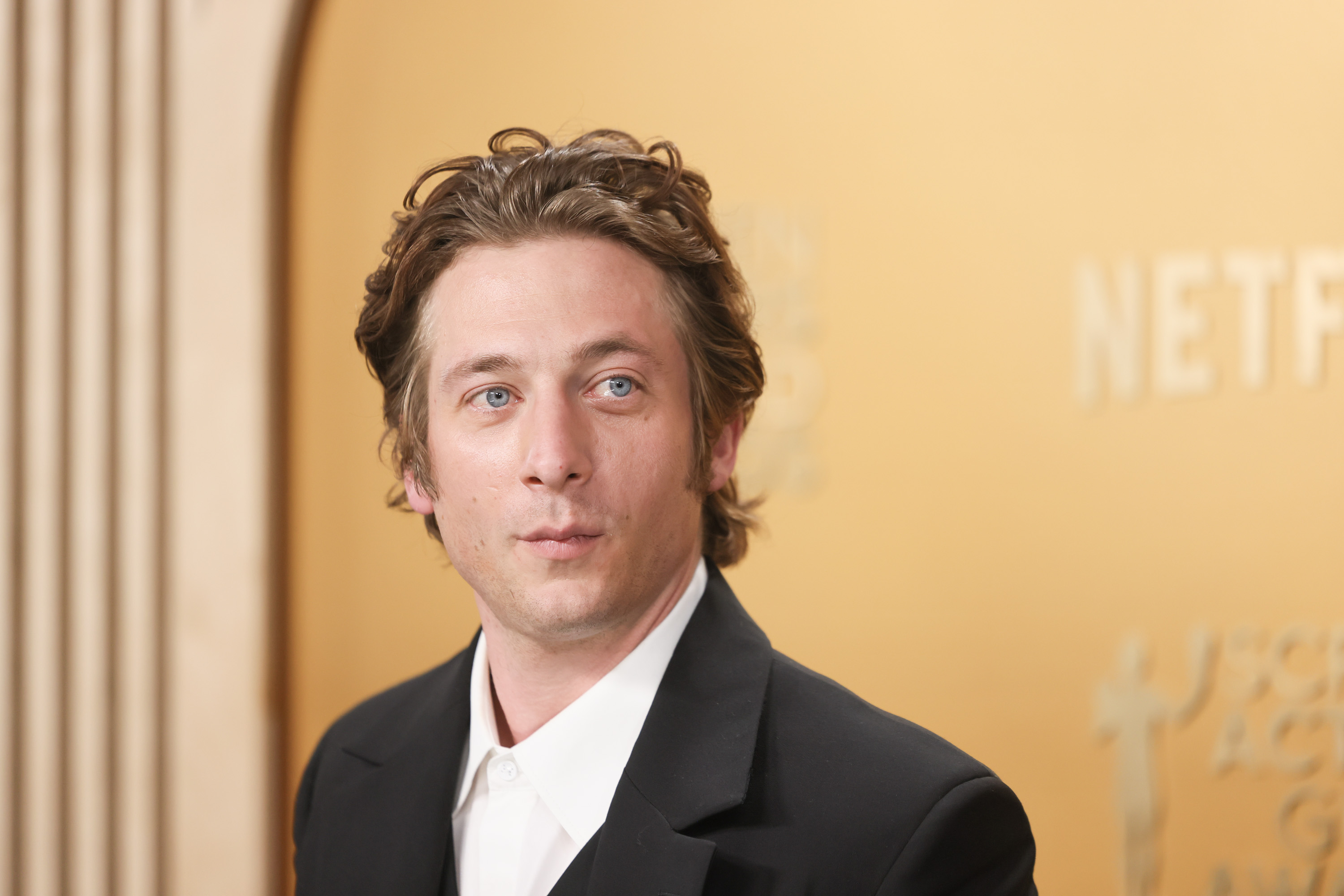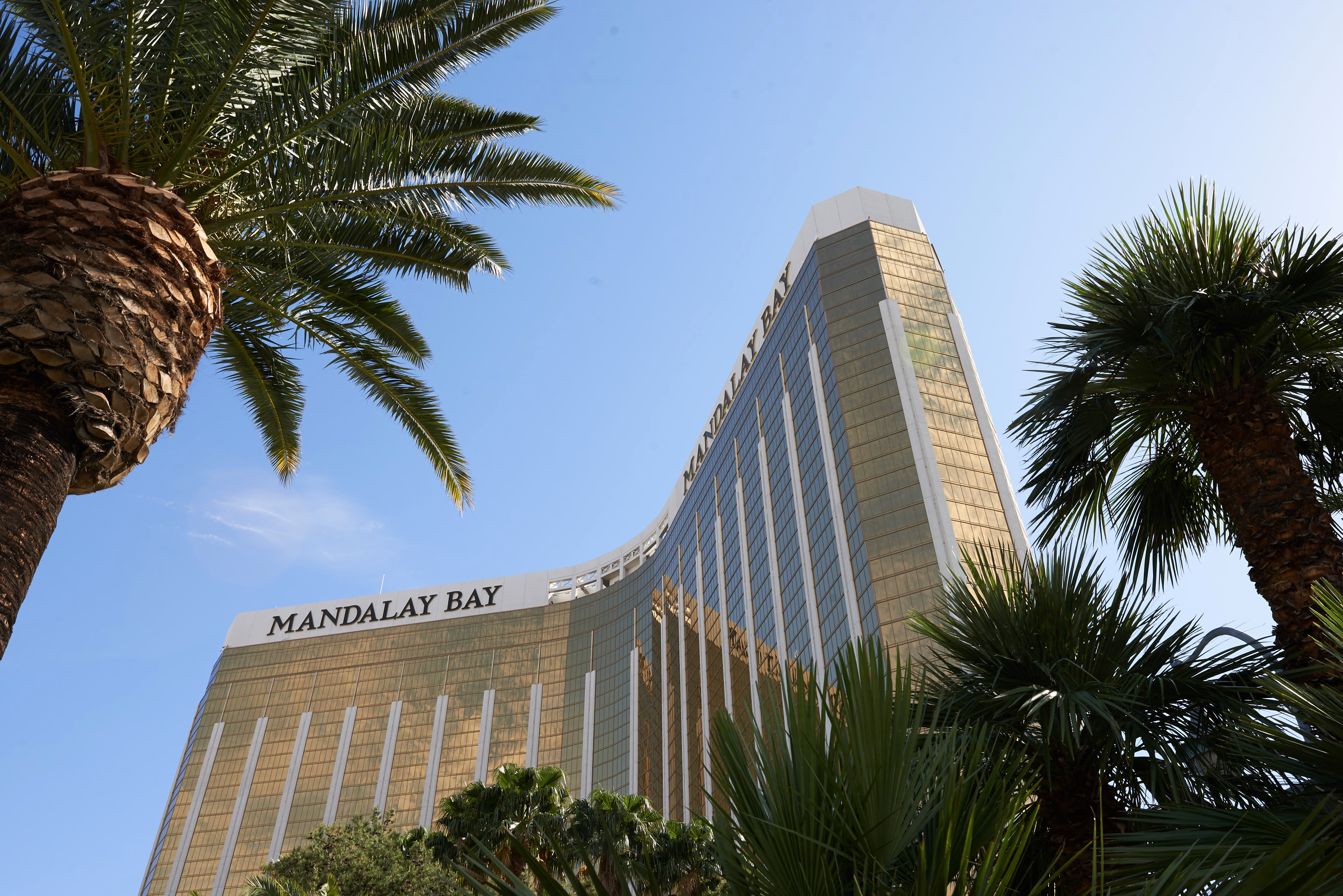
Amid reports that a Chicago hospital executive said he vaccinated Eric Trump during an event at Trump Tower, the doctor said his text "was meant as a joke," and while Trump was in the building as vaccines were administered, he was not actually vaccinated.
Block Club Chicago reported Dr. Anosh Ahmed, chief operating officer for Loretto Hospital, shared a photo of himself with Trump, writing in a message "vaccinated Eric Trump." The message was shared on the same day a controversial vaccine event was held at the downtown building in partnership with Loretto Hospital.
“Eric Trump happened to be in the building but we did not vaccinate him," Ahmed said in a statement. "A few residents including myself did take a photo with him. My text was meant as a joke, given his anti-vaccine stance.”
Trump has not publicly spoken out about the coronavirus vaccine, though his father, former President Donald Trump, has shared debunked views and expressed skepticism of vaccines on multiple occasions in years prior to the coronavirus pandemic.
Trump Tower workers received coronavirus vaccinations earlier this month from Loretto Hospital staff, sparking questions as to why the group of employees were given vaccinations.
The West Side hospital confirmed Tuesday that their infectious disease team vaccinated 72 "predominately Black and brown restaurant, housekeeping and other hotel support personnel" at Trump International Chicago.
The hospital said West Side residents who work at the hotel requested the Loretto Hospital staff come to provide vaccinations, saying they were "unable to leave their jobs to be vaccinated during regular in-hospital hours."
Local
The Chicago Department of Public Health said in a statement that the city was not aware of the vaccination event and officials have reached out for more details.
"Hotel workers are in phase 1C, which we hope to enter at the end of the month," CDPH said in a statement. "These phases align with guidance from the Centers for Disease Control & Prevention and are designed to ensure the vaccine gets to the most impacted communities and individuals. In addition, this was not a Protect Chicago Plus event, which are focused on high-need communities according to the CCVI (COVID Community Vulnerability Index)."
Feeling out of the loop? We'll catch you up on the Chicago news you need to know. Sign up for the weekly Chicago Catch-Up newsletter.
Loretto Hospital said the doses used during the event from the hospital's own vaccine allotment, "not from Protect Chicago Plus allocations, which are reserved specifically for Austin residents."
"The Chicago Department of Public Health has been in contact with hospital leadership to clarify the department’s guidance regarding community vaccinations moving forward," the hospital said in a statement.
In initial reporting from Block Club Chicago, hotel employees and a resident said the vaccinations were offered and administered to the tower’s employees more broadly, including people who were white.
Currently, much of the Chicago area remains under Phase 1B guidelines, which opens up vaccinations to people age 65 years and older as well as "frontline essential workers," including first responders, education workers like teachers and support staff, childcare workers, grocery store employees, postal service workers and more. That's in addition to the health care workers and long-term care facility staff and residents who were eligible in Phase 1A of the state's rollout.
Most recently, however, Illinois entered what it called Phase 1B plus, opening up doses to those with certain high-risk medical conditions and co-morbidities. Chicago and several surrounding suburbs, however, opted not to increase eligibility along with the state, citing a lack of doses.
Chicago is slated to move to Phase 1C, which opens up eligibility to people with certain underlying health conditions and other essential workers not already eligible under Phase 1B, on March 29, city officials said.
Phase 1C would expand vaccine eligibility to all other essential workers not already eligible as well as Chicagoans over the age of 16 with underlying medical conditions.



